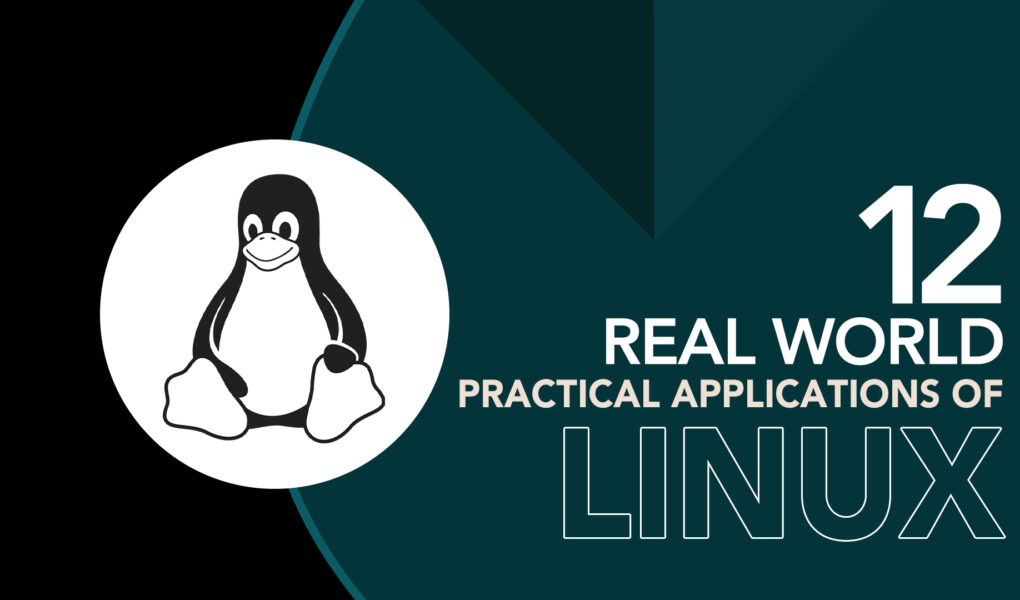Linux is a popular operating system that has found its way into various industries, from education to finance to web hosting. It is open-source, which means that its source code is freely available to the public, and it is highly customizable, making it an excellent choice for individuals and organizations looking for a versatile and cost-effective operating system.
With that being said, it’s worthwhile to consider the various practical applications of Linux that are currently being implemented in the real world. Want to know about a few? In the following section, we will examine 12 real-world use cases of Linux, which span from web hosting to scientific research to data analysis.
1: Web Hosting with Linux
As a stable, secure, and customizable option, Linux is an excellent choice for web hosting. Linux-based hosting packages, such as shared hosting, virtual private servers (VPS), and dedicated servers, are offered by a multitude of web hosting providers. This is because Linux provides a reliable and efficient platform for web hosting, ensuring that websites operate smoothly and securely.
2: Single-Board Computers
Linux is also a great choice for single-board computers, such as the popular Raspberry Pi. Embedded systems, such as robotics, automation, and Internet of Things (IoT) devices, are well-suited for the utilization of single-board computers. Linux’s flexibility, low resource requirements, and open-source nature make it a popular choice for these applications, enabling them to be cost-effective and easily customizable.
3: Virtualization
Virtualization solutions such as KVM and Xen are based on Linux, making it an excellent choice for virtualization. These solutions allow users to run multiple operating systems on a single physical machine, providing a cost-effective and efficient way to run multiple applications. With Linux, users can take full advantage of virtualization technology and create powerful virtual machines with ease.
4: Cloud Computing
Many of the world’s largest cloud computing platforms, including Amazon Web Services, Google Cloud Platform, and Microsoft Azure, are powered by Linux. Linux’s scalability, security, and flexibility make it an ideal choice for cloud computing applications. Linux provides a dependable and strong cloud computing infrastructure that enables businesses to ensure the security and accessibility of their applications and data.
5: Repurposing Old Computers
Linux is a perfect choice for repurposing old computers. Older hardware that may not run well on modern operating systems can still run smoothly on lightweight Linux distributions. These distributions are designed to be lightweight and use fewer system resources than traditional operating systems, making them ideal for older hardware. With Linux, users can breathe new life into their old computers and use them for various tasks such as browsing the web, watching videos, or running basic applications.
6: Gaming on Linux
Linux is becoming an increasingly popular choice for gaming due to its stability, security, and compatibility with many popular game engines, such as Unity and Unreal Engine. Many games, such as Dota 2, CS:GO, and Team Fortress, are available for Linux, providing gamers with a wide range of options. With Linux, gamers can enjoy their favorite games with peace of mind, knowing that they are running on a reliable and secure platform.
7: Multimedia Production with Linux
Many Linux distributions coming pre-installed with multimedia production software, such as audio editors, video editors, and graphic design software. Linux’s stability, security, and low resource requirements make it a popular choice for multimedia production, enabling users to create high-quality multimedia content without worrying about system crashes or performance issues.
8: Backup and Recovery
Linux is an ideal choice for backup and recovery solutions, with many Linux distributions coming pre-installed with backup and recovery tools that allow users to back up their data and recover it in case of a system failure. Linux’s stability and security make it a reliable choice for backup and recovery solutions, ensuring that critical data is protected and easily recoverable.
9: Using Linux for Cybersecurity
Linux is a popular choice in the field of cybersecurity for a range of applications, including penetration testing, network security, and malware analysis. Its reputation for being secure, stable, and reliable make it the preferred operating system for cybersecurity professionals who need robust computing capabilities.
10: Linux in Scientific Research
Linux is a commonly utilized operating system in the realm of scientific research for tasks such as data analysis, simulation, and modeling. With the availability of numerous scientific software packages including MATLAB, R, and Python, Linux is an ideal choice for those seeking to perform data analysis and scientific computing.
11: Embedded Systems with Linux
Linux finds extensive applications in various embedded systems, such as smartphones, tablets, and smart TVs. Its open-source nature, scalability, and flexibility make it the preferred operating system for embedded systems that demand customization and a significant degree of control.
12: Internet of Things (IoT)
The Internet of Things (IoT) denotes the connection of devices and objects, enabling them to accumulate and exchange data. Linux enjoys widespread usage in various IoT devices such as home automation systems, smart thermostats, and industrial control systems. Its open-source nature, scalability, and flexibility make it the preferred operating system for IoT devices that necessitate customization and a high degree of control.
Conclusion
Linux is a versatile and cost-effective operating system that can be used in a wide variety of industries and applications. The article talks about 12 real-world practical applications of Linux, ranging from virtualization to IoT to cybersecurity. As technology continues to evolve, it is likely that Linux will continue to play a crucial role in many industries and applications.



